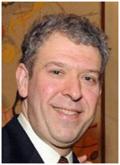This article discusses
- Guidelines for attorney marketing activities so as not to violate ethical standards.
- Appropriate use of language and information on letterhead and promotional materials.
When attorneys prepare a business development program that involves any thing related to marketing communications, there is legitimate concern that the programs and activities adhere to professional responsibility codes and other regulations. Virtually all jurisdictions give significant attention to issues involving advertising, solicitation, and other promotional efforts. There are two basic restrictions to attorney advertising: one involves direct solicitation; the other forbids attorneys from calling themselves specialists unless they practice in a jurisdiction where there is a system for designating or licensing specialists. The appropriate language is that an attorney "emphasizes land use (or whatever)." To "specialize in land use" implies some sort of formal training that may or may not exist. Restrictions on advertising are usually combined with guidelines on publicity, solicitation, and promotion. They are discussed in professional codes of the jurisdictions. But the U.S. Supreme Court has continually stopped attempts by bar officials to block attorneys from seeking new clients through advertisements and other written communications.
It is obvious that an attorney cannot make any false or misleading statement. But this basic concept brings about the most criticism of attorney advertising. Critics argue that it is virtually impossible to tout legal services with out making promises for or overstating the quality of the services performed. Creating unreasonable expectations is not only wrong but is also poor marketing. Additionally, it is wrong to state or imply that the attorney handles matters in a particular practice area when in fact the attorney routinely refers such matters to others. An attorney may not claim experience when it doesn't exist. The attorney may not convey an impression that he or she is in a position to influence any court or other public body improperly.
- Direct solicitation is not appropriate. (Direct persona/solicitation is almost uniformly banned. Even items such as holiday greeting cards to non-clients may be prohibited.)
- Communication should not be false or misleading about the attorney or services. "Communication" includes statements both oral and written or through any other means of expression.
- Communication should not misrepresent facts or laws, omit facts that make a statement misleading, make misleading statements causing unjustified expectations.
- Copies of all written promotional communication and recordings of all broadcast promotions should be kept for a year, along with records of where, when, and how the communication was used.
- An advertisement should be identified as such, unless it is obvious that it is a paid promotion.
- All advertisements should clearly identify the name and office address of the attorney or firm whose services are being offered.
- Publicity, as different from advertising, should not be obtained through purchase or any other kind of compensation directly to the media.
- An attorney can be "Of Counsel" on a letterhead only if he or she has a continuing professional relationship other than as a partner or associate.
- An attorney can be "General Counsel" only if he or she devotes a substantial amount of professional time representing clients.
- An attorney should not practice under a name that makes the identity of the attorney unclear.
- Attorneys should identify who is qualified to practice in various jurisdictions, particularly when there are multiple offices.
- In addition, most jurisdictions have specific rules regarding the use of names of attorneys no longer practicing in the firm. Local codes should therefore be checked carefully before preparing any kind of printed materials.




